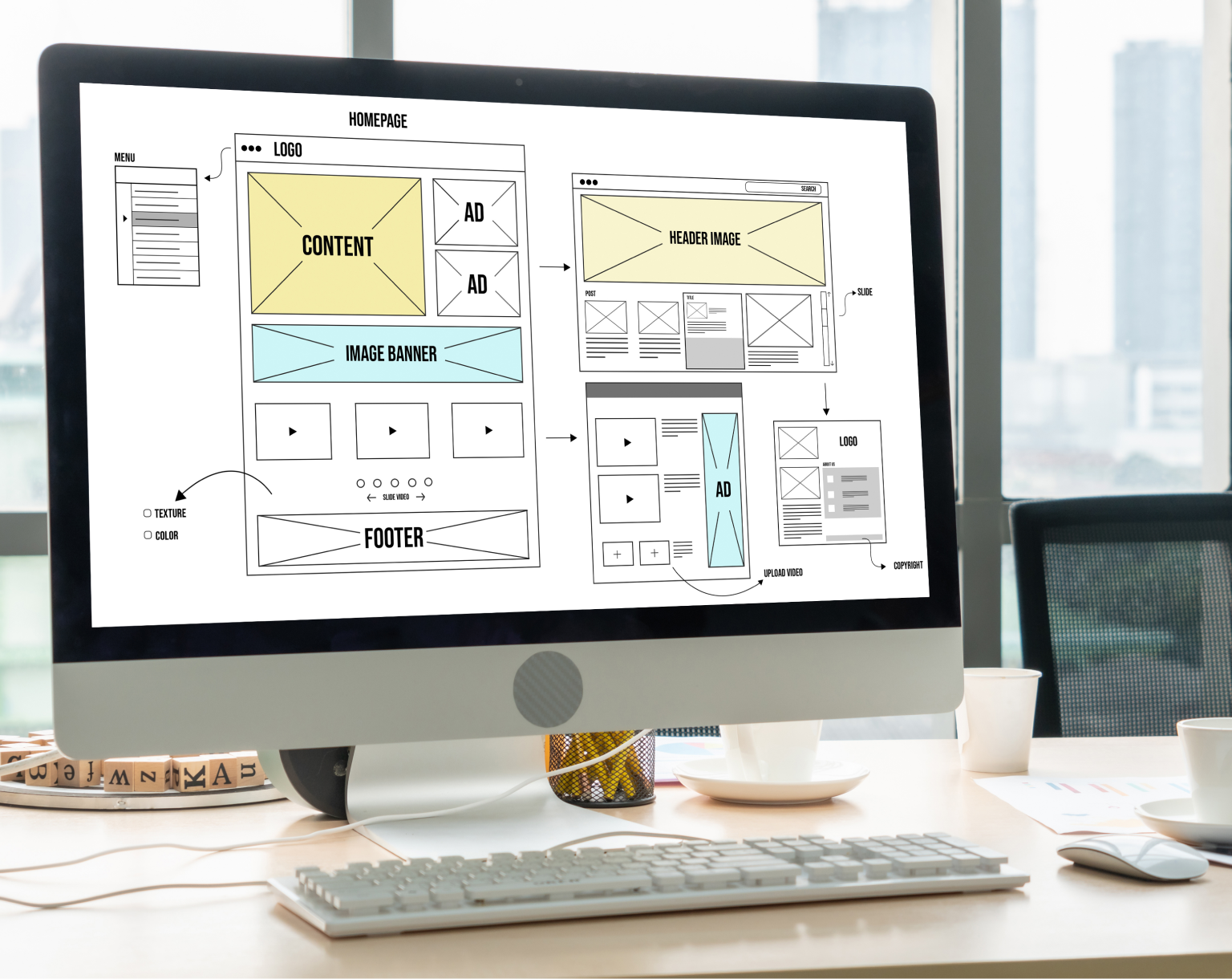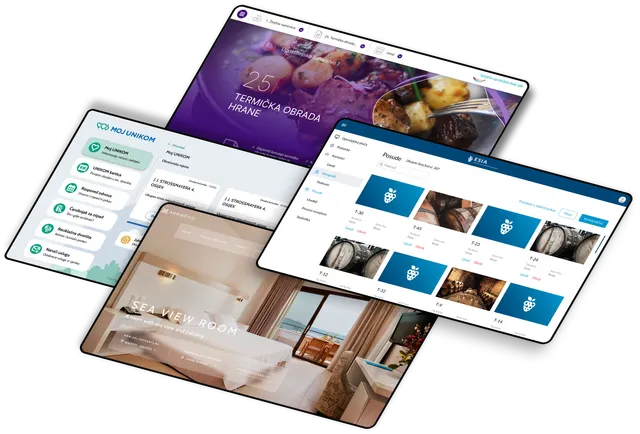
10 Best Web Design Companies for Small Businesses
Key Takeaways:Gauss delivers enterprise-quality websites ...

Author:
Tomislav Horvat

First Impressions Matter: A well-designed website is crucial for making a strong first impression, influencing 75% of users' credibility judgments.
Enhancing User Experience: Good web design ensures a seamless and responsive user experience, crucial for retaining visitors and increasing conversion rates.
Building Trust and Credibility: Professional, consistent design and the inclusion of social proof elements like testimonials enhance trust and credibility.
Impact on SEO: Web design directly affects SEO, with elements like page speed and mobile responsiveness playing a vital role in search engine rankings.
Competitive Advantage: Superior web design differentiates your business, attracting more attention and leads compared to competitors.
Consistency Across Platforms: Maintaining design consistency across all devices fosters brand recognition and user trust.
Supporting Business Goals: Effective web design aligns with and supports your business objectives, enhancing engagement and driving higher ROI.
The design of your website is more than just an aesthetic choice—it's a strategic tool that can make or break the success of your business.
Whether you're looking to attract new customers, boost sales, or enhance your brand's online presence, understanding the importance of web design is crucial.
The right web design elements can transform your site into a powerful asset, helping to create a successful website for your business that meets its goals and engages its audience. Now, let’s get into the 7 reasons why we think good web design is important.

When someone visits your website, the first impression they get is incredibly important. In fact, 75% of users make snap judgments about a company’s credibility based solely on the website’s design.
These first impressions are formed within seconds, often before they even begin to explore the content.
A good first impression hinges on the quality of your website’s design. Elements like layout, color schemes, and typography play a critical role in how users perceive your brand.
If the visual elements appear outdated or low-quality, it can lead to negative perceptions, which can be hard to reverse.
Given the short attention spans of users today, it’s crucial to ensure that your website’s design is clean, modern, and reflective of your brand’s identity.
You have to align your website design with your brand to not only create a strong first impression but also enhance recognition and engagement.

User experience is another important factor in whether visitors stay on your site or quickly move on.
A good website design focuses on creating a seamless user experience (UX), where everything from navigation to loading times feels smooth and intuitive.
For instance, having a responsive website is crucial, as over 50% of web traffic now comes from mobile devices. If your site isn’t responsive, users may struggle to navigate your website, leading to frustration.
A user-friendly design allows visitors to easily find the important information they are looking for, which keeps them engaged with your brand.
Consistency in design across all pages not only enhances usability but also strengthens the overall UX. This helps guide users towards taking desired actions, such as completing a purchase or filling out a form, ultimately leading to better conversion rates.
When you focus on UX, you ensure that your visitors have a positive experience, which increases the likelihood that they will return.

Trust and credibility are fundamental when it comes to online interactions. Users are far less likely to trust a website that appears poorly designed. A beautifully designed website immediately signals professionalism and reliability.
Consistency in design elements across your site also plays a key role in establishing this trust. When your website is cohesive and well-structured, it becomes easier for users to engage with your brand.
In addition to design, social proof is another critical factor in building credibility. Testimonials and reviews prominently displayed on your site can reassure visitors that they’re making the right choice.
Well-placed calls to action (CTAs) can further guide users toward positive interactions with your brand. It’s also important to ensure your website is accessible to all audiences, which not only builds trust but also broadens your potential customer base.
Ultimately, maintaining brand consistency across your site reinforces credibility, helping to establish a lasting relationship with your users.
If you don’t believe us, consider how much more willing you are to engage with a brand that consistently delivers a professional, easy-to-navigate experience.

The way your website is designed has a direct impact on SEO, influencing how your content is published, indexed, and ranked by search engines.
Elements like page speed and mobile responsiveness are vital to this process. If your site is slow to load or difficult to navigate on mobile devices, it can negatively affect your search engine rankings.
These factors can make or break your online visibility, as search engines prioritize user-friendly experiences.
A key part of the web design process involves creating SEO-friendly code and incorporating important elements that help your site rank higher in search engine results.
This includes using targeted keywords in meta descriptions, title tags, and headers, all of which should be seamlessly integrated into a well-structured website.
Consistency in design and layout is also crucial, as it helps search engine spiders crawl and index your site more efficiently. Good web design makes it easy for both users and search engines to navigate your website.

Today, having a strong online presence is vital, and that’s where web design is important. A well-designed website can significantly differentiate your business from the competition.
While many businesses make use of digital marketing strategies, those with superior web design often stand out, attracting more attention and, consequently, more leads.
Working with a skilled web design agency can help ensure that your website highlights the unique features that set your business apart from the competition.
Effective web design not only showcases what makes your business special but also keeps your site visually appealing and up-to-date, which is crucial in maintaining a competitive edge.
The best web designs are those that engage with your brand’s audience, reducing bounce rates and increasing the potential for conversions.
In a landscape where everyone is vying for attention, your website’s design can be the deciding factor that puts you ahead of others.
Maintaining consistency in design elements, such as fonts, brand colors, and layouts, is vital for building and sustaining brand recognition.
When users interact with your website, they should experience a cohesive look and feel that’s consistent across your website.
This uniformity helps foster a sense of familiarity and trust, which can lead to longer engagement and, ultimately, higher conversion rates.
A responsive design plays a key role in this consistency, ensuring that users have a seamless experience whether they’re on a desktop, tablet, or smartphone.
As screen sizes vary, your website’s design should adjust accordingly without compromising on its visual appeal or functionality.
A well-thought-out style guide is an essential tool for web designers, helping them maintain consistency across all pages and platforms.
This guide outlines the specific design elements and principles that should be followed, ensuring that the website’s design remains intact, no matter the device or resolution.

When considering web design and development, it's important to align the website with your business goals.
Whether your focus is on lead generation, increasing sales, or building brand awareness, the design should reflect and support these objectives. Effective web design can create websites that seamlessly integrate with your broader business strategy.
One key aspect is the use of clear call-to-action (CTA) elements. CTAs guide visitors towards the actions you want them to take, whether it's making a purchase, signing up for a newsletter, or contacting your team.
These elements, combined with a user-friendly layout, make it easy for visitors to engage with your business online.
Successful businesses make strategic decisions about how their online presence is crafted, and a well-designed website should be one of the top priorities.
A well-designed website doesn't just look good; it can also streamline operations by making information accessible and processes smoother. This efficiency can improve overall business performance and support long-term goals.
Lastly, good web design plays a crucial role in driving user engagement. When visitors find it easy to navigate and interact with your site, they are more likely to spend time on it, leading to better engagement and ultimately a higher return on investment (ROI) from your marketing efforts.
If you're considering enhancing your online presence, Gauss offers top-tier web design services tailored to your needs.
We understand that design is an important part of your business strategy, and we want your website to stand out and succeed.
Visit our contact page to start your project today.

